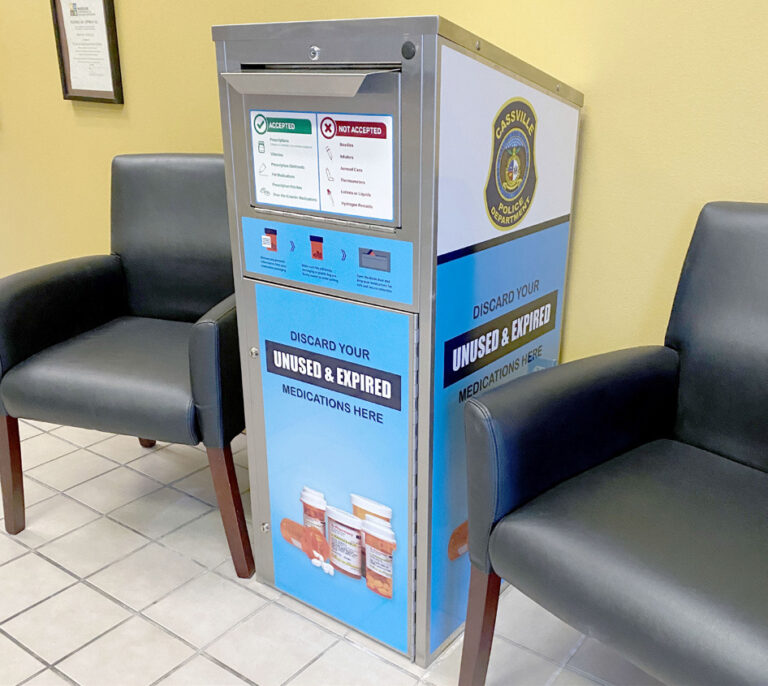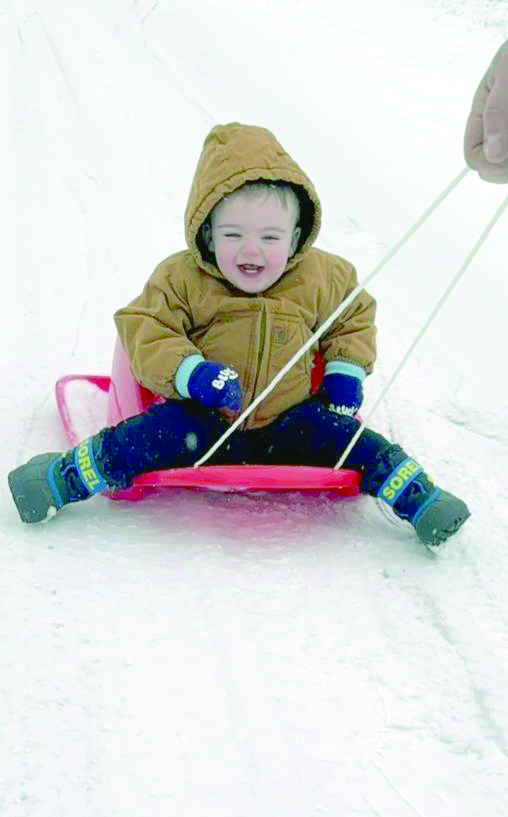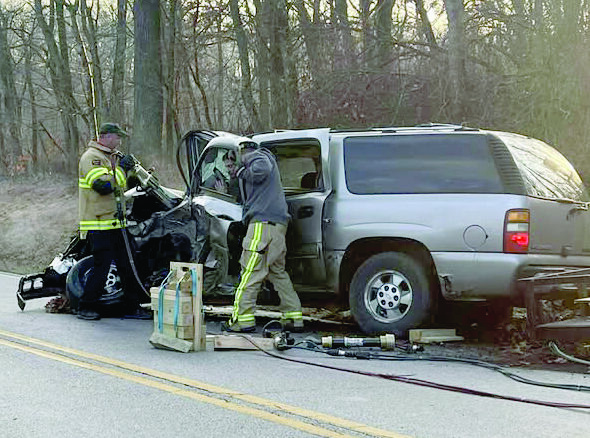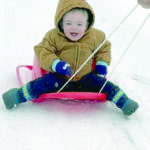Drug drop box installed at Cassville City Hall

Cassville Police Department collected 46 pounds of medications last year
The Cassville Police Department participates in the Drug Enforcement Administration’s annual Drug Take-Back Day, but due to the number of drugs brought in throughout the year, a greater solution was needed.
Det. Stuart Lombard, with the Cassville Police Department, said a permanent drop box is now installed in the City Hall lobby, available during lobby hours for people to drop off their unused, expired or no-longer-needed drugs.
“We always participate in National Drug Take-Back Day, but we take back drugs year-round,” Lombard said. “We realize people have old prescriptions or drugs they need to get rid of. This method eliminates interaction with City Hall staff or police having to pick up drugs brought in.”
Lombard said the purpose of the box is not only to offer a full-time drop location, but also to make it safer.
“We don’t like the idea of someone handing a bag of prescription pills or bottles to someone in the front office of the city, so this eliminates that middle man,” he said. “Police will empty the box each day, and we will be the only ones handling the medications with proper gloves and [personal protective equipment].”
Accepted medications include: Tablets, capsules, patches, and other forms of prescription drugs. They can be sealed in their original prescription bottles. Liquid products, such as cough syrup, should remain tightly sealed in their original container.
Items not accepted in the drop box include: Syringes, sharps, inhalers, aerosol cans, Mercury thermometers, iodine-containing medications and illicit drugs. The public should inspect the items they are bringing into ensure they only have accepted items, as police often receive a large amount of prohibited items and trash.
Lombard said the Cassville Police Department took in 46.6 pounds of unwanted medication in 2023. With the permanent box in place, he expects that number will climb.
“The most common things we see are old prescriptions or half-empty bottles,” he said. “We stay pretty busy with prescriptions from deceased individuals, whose family does not know what they are or what to do with them.
“I think overall we will see a small increase in what we take in, mainly because of the convenience,” Lombard said once given to police, the medications are placed in DEA-authorized receptacles, then delivered to the DEA office in Springfield once per year.
The box in City Hall was installed on Jan. 3, and Lombard said there is no limit to how much a person can put in the box, provided they are approved items.
“We ask that anything people can dispose of themselves safely, via instructions on the medication or from a physician, to please do so,” Lombard said. “Many medications can be discarded in the trash, but healthcare providers’ instructions should be followed before disposing of them. Looking at the package insert of medication can sometimes provide special instructions for disposal.
“We are happy to assist with anything else. This is another service we provide. At the end of the day, we don’t want medications to fall into the hands of someone they are not prescribed to. If you put them in the trash, people may still find them, and they could be harmful.”




